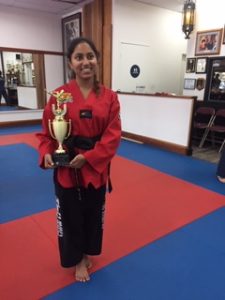 Anika Mathur is 17 years old and lives in California. Anika, or Ani, is a dedicated student and an accomplished classical dancer who loves to cook.
Anika Mathur is 17 years old and lives in California. Anika, or Ani, is a dedicated student and an accomplished classical dancer who loves to cook.
Ani is also a fighter. She holds a blackbelt in Taekwondo, the Korean martial art that focuses on striking your opponent as a means of self-defense.
Tae Kwon Do translates to “the way of foot and fist”. It is often characterized by an inordinate amount of jumping and spinning…with repeated ‘kicks to the head’.
Given her training as a classical dancer, Anika took well to martial arts.
A Different Kind of Battle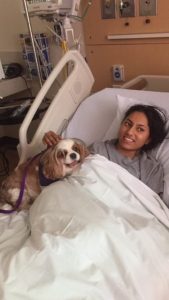
Now, Anika is fighting a much different type of battle.
Last year she was diagnosed with Aplastic Anemia, a life-threatening condition where the body doesn’t produce enough new blood cells.
Aplastic Anemia leaves the patient feeling fatigued and with a higher risk of infection and the potential for uncontrolled bleeding.
Since her diagnosis, and given the repeated visits to the hospital, Anika has been homeschooling. Her parents hope that she can still graduate High School on time, while also maintaining a lower risk of infection.
Anika will need more than “foot and fist” to combat Aplastic Anemia. To survive, she needs a matching stem cell donor from a stranger.
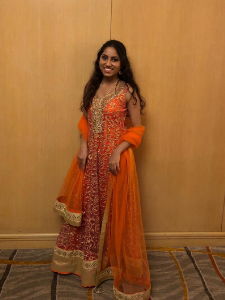 Give Anika a Fighting Chance
Give Anika a Fighting Chance
There is no matching donor in her family. There is also no match on the national Be The Match marrow registry.
Because Anika is of Indian descent, the odds of a successful transplant are greater if we can find a donor with similar South Asian ancestry.
We need more South Asians to include themselves on the registry.
We have been recruiting within Indian communities across the country. If you are aware of opportunities where we can reach a larger audience, please email us at info@icla.org and include “For Anika” in the subject line.
Help us find a matching stem cell donor for Anika to survive.
Include Yourself on the Registry
If you are between the ages of 18-40, you can easily add yourself to the registry. Ask your friends and family to join as well. Click the link below to set up an account and answer a few questions. A kit will be mailed out, asking you to swab the inside of your cheek for HLA typing.
Once you return the kit, your name will be included on the registry to see if you are a match for Anika…or any of the other 14,000 patients who do not yet have a matching cure.
Help us find a cure for Anika. Help us give her a fighting chance.
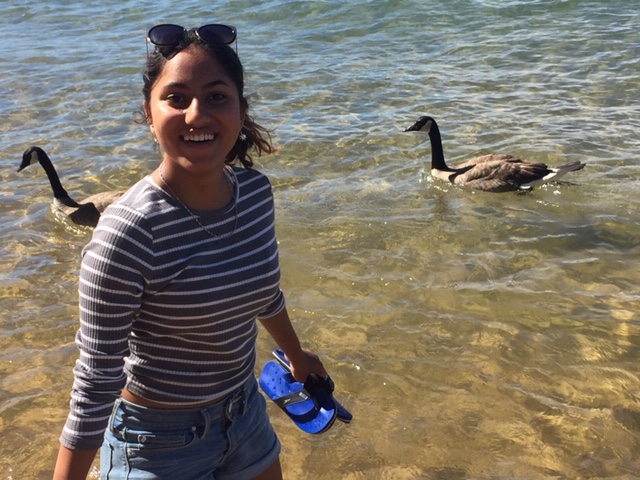
Written by Bret Itskowitch
We Have Some Good News! But It’s Not EnoughThe Icla da Silva Foundation has been saving lives for many years. In the beginning, we had a small footprint, adding 5000 people per year to the Be The Match Bone Marrow Registry.
We have grown considerably. In the next year, we hope to pass the half-million mark, adding more than 500,000 potential life-savers to the registry.
Some Good News
In October, we arranged for two cancer survivors to meet their life-saving donors for the first time. They each met onstage during our Hope Gala in NYC:
 Marta Sanchez registered through Icla da Silva 11 years ago. Thankfully, when she finally received the call that she matched a patient in need, she said yes. Marta and Giliani Lacayo met for the first time on stage at our Hope Gala (watch video).
Marta Sanchez registered through Icla da Silva 11 years ago. Thankfully, when she finally received the call that she matched a patient in need, she said yes. Marta and Giliani Lacayo met for the first time on stage at our Hope Gala (watch video).
 Stephanie Cisne had been diagnosed with an aggressive form of Leukemia. We had worked with Stephanie’s family during their search for a matching transplant several years ago. Stephanie got to meet her life-saving donor Crystl for the first time (watch video).
Stephanie Cisne had been diagnosed with an aggressive form of Leukemia. We had worked with Stephanie’s family during their search for a matching transplant several years ago. Stephanie got to meet her life-saving donor Crystl for the first time (watch video).
 In November, we were notified that 7 people who joined the registry through Icla da Silva, transplanted their bone marrow or stem cells to patients suffering from life-threatening diseases.
In November, we were notified that 7 people who joined the registry through Icla da Silva, transplanted their bone marrow or stem cells to patients suffering from life-threatening diseases.
Each one of them is a life-saver.
But It’s Not Enough
We are proud of the work that we do, but it isn’t enough. We continue to work with so many patients and their families who are still searching for their own life-saving match.
Still Searching

Asaya’s parents have been searching for a match since he was 2 months old. Asaya turned 8 in July and there is still no match for Asaya.
Julian’s family has been searching the registry for 5 years. Three donors were identified, but each one of them said no when the call was made that they were a match. There is no committed donor for Julian.
Veronica’s family has been searching for almost 3 years. There is still no match for Veronica.
Currently, there are no matches for so many patients.
Not yet anyway.
You Can Help
We have to keep moving forward. We must do everything we can to grow the registry in order to save more lives.
But we need your assistance. We cannot do it without you.
There are two ways you can help us add more donors to the registry.
We have been engaging college campuses across the country. Since the registry is underrepresented across all ethnic minorities, we are focusing on Universities with diverse enrollment.
#1 Introduce Us
You can help us by leveraging any contacts you may have with University Leadership, as well as Social, Professional, or Service-Oriented Sororities and Fraternities.
We are meeting with Deans, Professors and other on-campus Leaders in order to organize larger recruitment drives among the student body. Send us an email (Airam@icla.org) or fill out a host form with your ideas.
#2 Sponsor Us
You can also assist our efforts with a financial donation. Help us sponsor ‘lunch and learns’ on campus. These gatherings provide the opportunity to share our stories and engage potential life-savers, adding more donors to the registry.
Thanks for reading. We are committed to saving as many lives as possible, and with your help, we will give more patients hope for their cure.
Your support will help us save more lives.
Written by: Bret Itskowitch
Unique Ties That Bind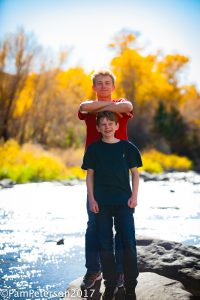 Charles and his brother William are very unique. Like many other sibling relationships, they love each other, but they still fight. They have many similarities, but at times, they are also polar opposites. They are both avid skiers, but they live in Puerto Rico. And while one brother was suffering from HLH, the other was able to donate his blood stem cells to save his brother’s life.
Charles and his brother William are very unique. Like many other sibling relationships, they love each other, but they still fight. They have many similarities, but at times, they are also polar opposites. They are both avid skiers, but they live in Puerto Rico. And while one brother was suffering from HLH, the other was able to donate his blood stem cells to save his brother’s life.
William Flaherty, the younger brother, was diagnosed with HLH (hemophagocytic lymphohistiocytosis) at the age of 3. HLH is a rare and life threatening condition seen more often in children than in adults. The immune system doesn’t shut off as it should, and begins to go throughout the body attacking the patient’s organs.
The only cure for William was a replacement of his immune system through a bone marrow transplant. The challenge with every bone marrow transplant, is finding a matching donor. While most patients only have a 25% chance of finding a successful sibling match, William’s brother Charles was a perfect match. Those Flaherty boys are unique.
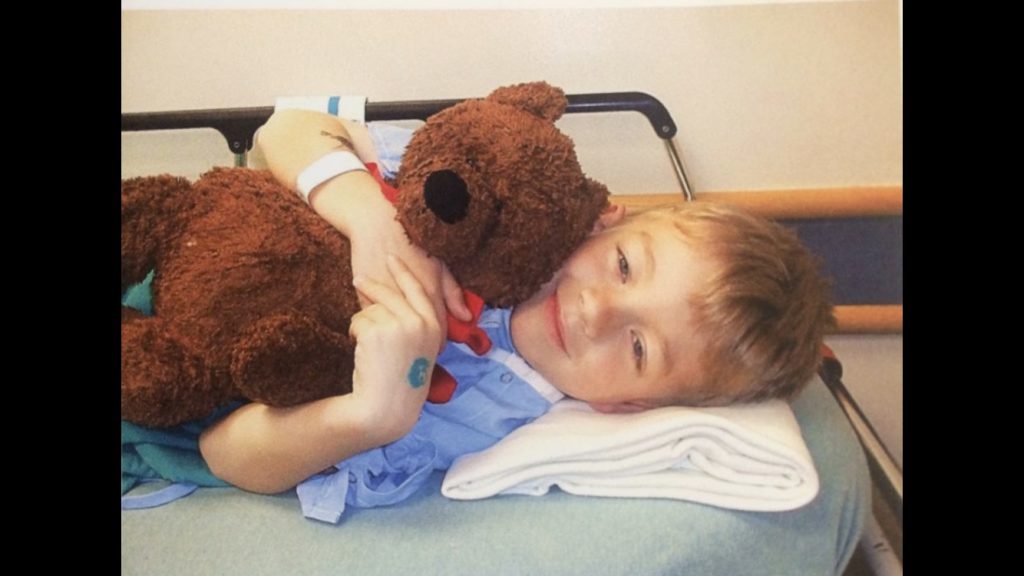
When asked about donating his stem cells, Charles, then 7 years old, was willing, but confused about the process. His parents, Dennis and Ann, shared all of the information with him and talked about the surgical procedure. Every surgery includes concerns, but Charles was ready to have his stem cells harvested so that they could be transplanted to his little brother. When asked about the procedure, he insists that the only discomfort he remembers was taking the bandage off. The surgery occurred on a Thursday; Charles was back in school on Monday.
When asked how they felt, and what was going through their minds during the harvest and then the transplant, both boys have the same perspective. “It’s ancient history…why do you adults keep talking about it?”
Both procedures were successful, and the brothers are happy and healthy, loving and bickering with one another.
When Charles is asked what he thinks now about donating his cells to his brother he says “it really wasn’t that much trouble and I’d do it again in a heartbeat.” When William is asked about his older brother stepping up to save his life, he replies, “it’s cool.”
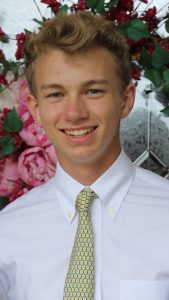 This year, Charles Flaherty will be competing in the 2018 Winter Olympics in PyeongChang, South Korea. He is the “Mono-Estrellada,” the single star on the Alpine ski team for Puerto Rico; not unlike the single star on the Puerto Rican flag. This year marks the return of Puerto Rico to compete in the Winter Olympics for the first time since 2002.
This year, Charles Flaherty will be competing in the 2018 Winter Olympics in PyeongChang, South Korea. He is the “Mono-Estrellada,” the single star on the Alpine ski team for Puerto Rico; not unlike the single star on the Puerto Rican flag. This year marks the return of Puerto Rico to compete in the Winter Olympics for the first time since 2002.
Charles was introduced to skiing on a father/son trip following the success of his little brother’s transplant. The trip was intended to provide Charles with some special attention, something outside of the ordinary, with a focus on him; something unique.
Charles took to skiing like a fish to water. The family made annual trips to Colorado, and they were able to schedule time with the same ski instructor each year. After a few years, the instructor insisted there was nothing more he could teach Charles recreationally, he should learn to race.
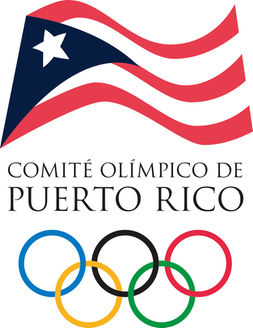 In December, the Puerto Rico Olympic Committee gave their Winter Athletes Federation (FPAI) a 6 month approval of membership, so Charles Flaherty will compete in Alpine skiing at the 2018 Winter Olympics, representing Puerto Rico. With his family behind him, Charles was committed. He continued training, and competed in over 100 races before receiving Olympic Committee approval. We wish Charles well in the Winter Olympics and we are proud of his dedication and commitment to his brother, his family, and to his sport.
In December, the Puerto Rico Olympic Committee gave their Winter Athletes Federation (FPAI) a 6 month approval of membership, so Charles Flaherty will compete in Alpine skiing at the 2018 Winter Olympics, representing Puerto Rico. With his family behind him, Charles was committed. He continued training, and competed in over 100 races before receiving Olympic Committee approval. We wish Charles well in the Winter Olympics and we are proud of his dedication and commitment to his brother, his family, and to his sport.
We encourage you to root for him and we ask you to consider joining the Be the Match registry and staying committed, just like Charles. If you receive that call, asking on behalf of a patient who needs a bone marrow donation, please remember Charles.
To learn more about how you can make a difference in the lives of patients in need of bone marrow transplants and other diseases such as HLH, click here.
Click the button below to Join the Registry:
It’s Sunny in ChicagoChicago, the windy city, is known for jazz, Al Capone, deep-dish pizza, and die-hard sports fans. They have the Sears tower, they dye their river green on St Patrick’s Day and there is a warm sunshine that rises from one of it’s Northwest suburbs.
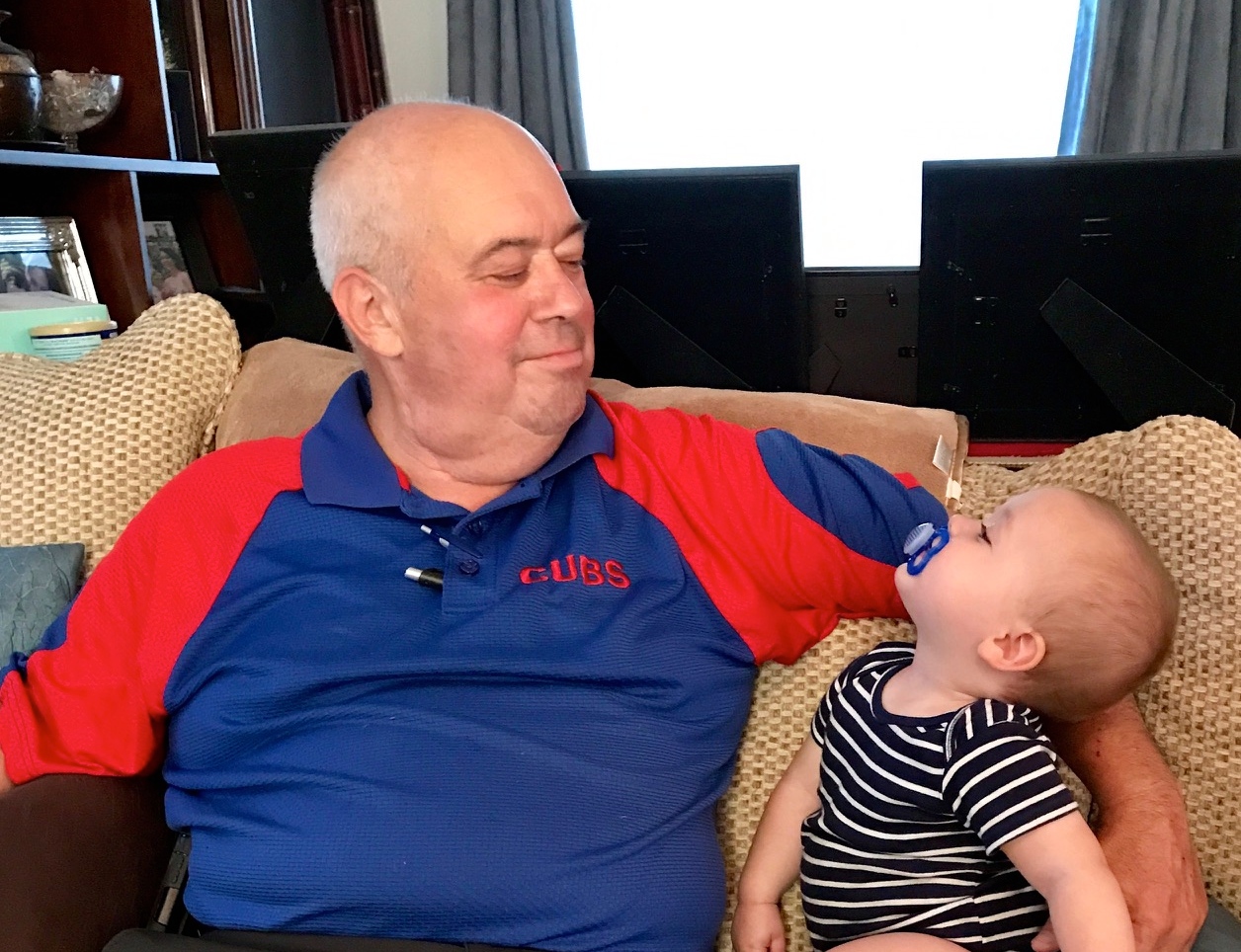
Craig Wisniewski lives in the Northwest suburbs, and that sunshine appears to be coming from his house. Craig has been married to his wife Jean for 42 years; they have a loving, tight-knit family, with 4 children and 4 grandchildren. Craig also has MDS (Myelodysplastic Syndrome), which he claims, “saved his life”.
Craig was diagnosed with MDS in February 2017. He was extremely exhausted, and had shortness of breath. His oncologist didn’t equate these symptoms to MDS and recommended a stress test. Two minutes into that test, they put an oxygen mask on Craig. His carotid artery was 90% blocked. He had to have surgery to clear his artery followed by quadruple bypass surgery. Family, friends, even doctors were surprised that he did not suffer a heart attack or a stroke.
Craig Wisniewski credits his MDS diagnosis with saving his life. In a weird twist of fate, without being diagnosed with MDS, he would not have met with his oncologist, who would not have recommended a stress test, and as a result, he would not have been operated on, twice, in order to save him from a stroke or a heart attack. He is truly grateful.
Now Craig needs a bone marrow transplant to cure his MDS. Based on his heart condition, it is imperative that he finds a 100% match. His three eligible siblings have been tested and none of them were a match. Sibling matches only occur in about 25% of bone marrow transplant cases. His doctor has indicated that finding a match will be extremely difficult due to his Hungarian, Polish and German ancestry. Ethnically diverse patients have a much harder time finding a matching donor within the bone marrow registry.
Craig is extremely aware that he may not find a matching donor, but he wants to use his experience and recent learning about bone marrow transplants to help other people. He wants to raise awareness of the importance of joining the registry and help other patients find their matches. Craig Wisniewski is on a mission. He is a ray of sunshine on a cold winter day in Chicago. Although he is facing one of the most devastating obstacles in his life, he wants to help other people.
Every year, 14,000 patients are diagnosed with cancers such as Leukemia and Lymphoma and can only be cured by a matching bone marrow donation. Be the Match is the largest registry of people willing to donate their bone marrow, and the Icla da Silva Foundation is the largest recruitment center for the Be the Match Registry. Icla da Silva specializes in working with patients who are ethnically diverse and may have a more difficult time finding a match.
You can join the registry, on Craig’s behalf, by using clicking here.
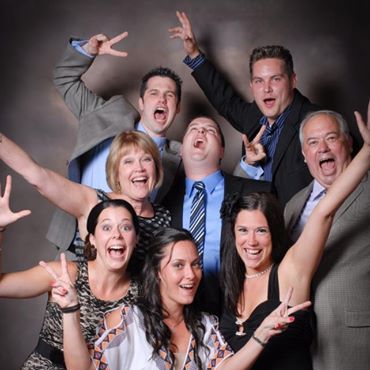
Craig Wisniewski is genuine. When he finished a round of chemo treatments in December, he was grateful just to be able to spend time with his loving family. He is warm, friendly and always joking to make people laugh and feel more comfortable. He sincerely wishes to help others find their match and dispel the myths about bone marrow donation, which prohibit people from registering to become donors and not answering the call if they are matched with a patient.
The process to become a potential donor is simple and more information is available here – 5 Steps of Bone Marrow Donation, but you need to take the first step and register.
The need for a bone marrow transplant happens for patients across all walks of life, regardless of age. More than 80% of newly diagnosed cases of MDS occur in people over the age of 60.
We are grateful for people like Craig and the sunshine that they bring to other people’s lives. Please help us find a match for Craig.
Save a life. Join Now.
Watch Craig’s story:
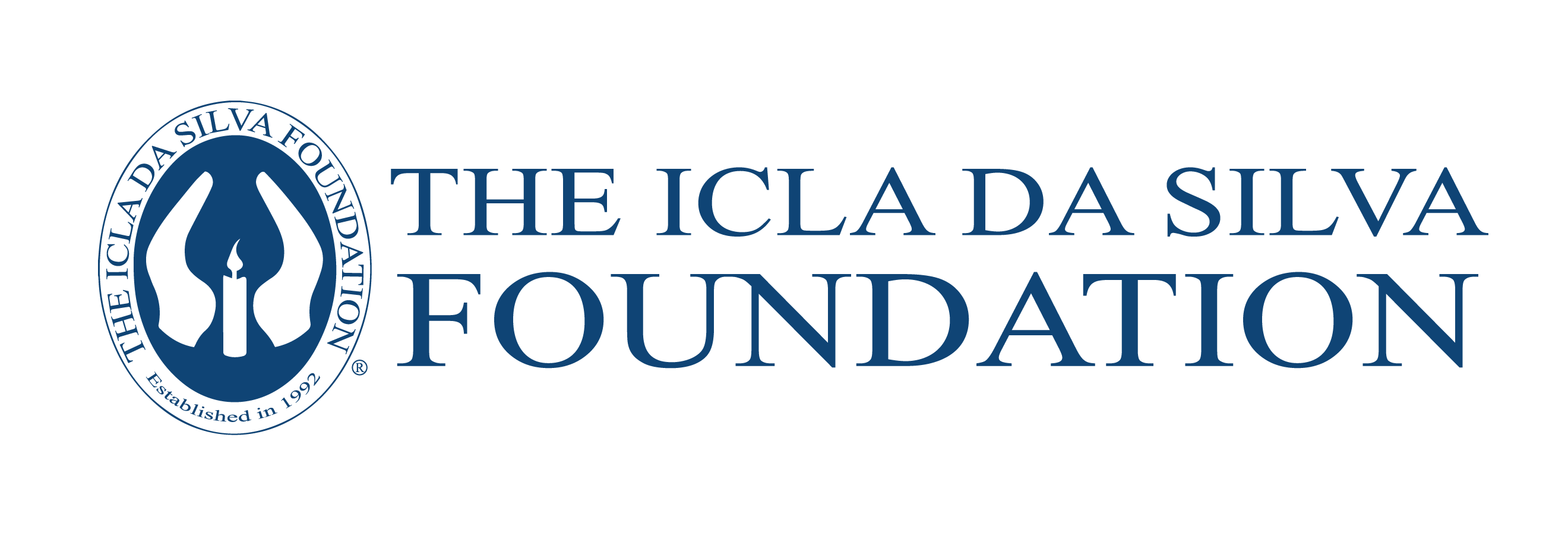
 English
English Spanish
Spanish Portuguese
Portuguese